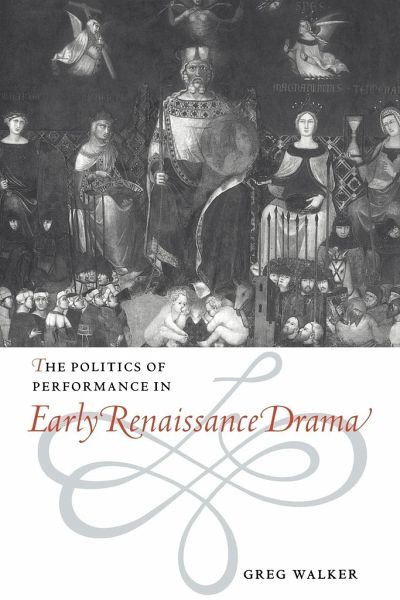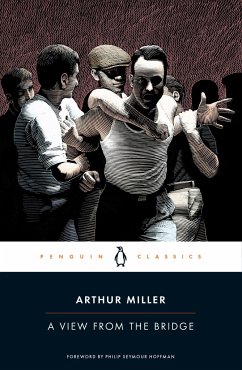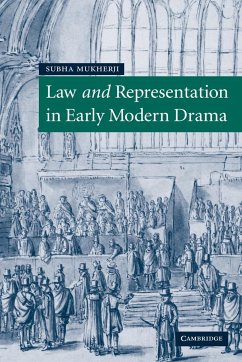
The Politics of Performance in Early Renaissance Drama

PAYBACK Punkte
20 °P sammeln!
Analyses the role of drama in English and Scottish court politics during the sixteenth century.Greg Walker provides a new account of the relationship between politics and drama in the turbulent period from the accession of Henry VIII to the reign of Elizabeth I. Building upon ideas first developed in Plays of Persuasion (1991), he focuses on political drama in both England and Scotland, exploring the complex relationships between politics, court culture and dramatic composition, performance and publication. Through a detailed analysis of one central dramatic form, the interlude or great hall p...
Analyses the role of drama in English and Scottish court politics during the sixteenth century.
Greg Walker provides a new account of the relationship between politics and drama in the turbulent period from the accession of Henry VIII to the reign of Elizabeth I. Building upon ideas first developed in Plays of Persuasion (1991), he focuses on political drama in both England and Scotland, exploring the complex relationships between politics, court culture and dramatic composition, performance and publication. Through a detailed analysis of one central dramatic form, the interlude or great hall play, and close study of key texts, Walker examines drama produced and adapted for varying conditions of performance: indoor and outdoor, private and public. He examines what happened when the play script was printed and sold commercially as a literary commodity. This interdisciplinary analysis will find a market among Tudor historians as well as students of medieval and Renaissance drama.
Review quote:
'Walker's book painstakingly reconstructs the circumstances of performance of a number of Tudor plays (by Heywood, Lindsay, and Udall) and concludes with a detailed account of the marital politics of Gorboduc, the first five-act verse tragedy in English - [his] readings are compelling and subtle.' The Times Literary Supplement
Table of contents:
Acknowledgements; Abbreviations; Introduction; 1. Playing by the book: early Tudor drama and the printed text; 2. Household drama and the art of good counsel; 3. John Heywood and the politics of contentment; 4. Acting government: Sir David Lindsay's Ane Satyre of The Thrie Estaitis; 5. Dramatic justice at the Marian court: Nicholas Udall's Respublica; 6. Strategies of courtship: the marital politics of Gorboduc; Epilogue; Appendices; Index.
Greg Walker provides a new account of the relationship between politics and drama in the turbulent period from the accession of Henry VIII to the reign of Elizabeth I. Building upon ideas first developed in Plays of Persuasion (1991), he focuses on political drama in both England and Scotland, exploring the complex relationships between politics, court culture and dramatic composition, performance and publication. Through a detailed analysis of one central dramatic form, the interlude or great hall play, and close study of key texts, Walker examines drama produced and adapted for varying conditions of performance: indoor and outdoor, private and public. He examines what happened when the play script was printed and sold commercially as a literary commodity. This interdisciplinary analysis will find a market among Tudor historians as well as students of medieval and Renaissance drama.
Review quote:
'Walker's book painstakingly reconstructs the circumstances of performance of a number of Tudor plays (by Heywood, Lindsay, and Udall) and concludes with a detailed account of the marital politics of Gorboduc, the first five-act verse tragedy in English - [his] readings are compelling and subtle.' The Times Literary Supplement
Table of contents:
Acknowledgements; Abbreviations; Introduction; 1. Playing by the book: early Tudor drama and the printed text; 2. Household drama and the art of good counsel; 3. John Heywood and the politics of contentment; 4. Acting government: Sir David Lindsay's Ane Satyre of The Thrie Estaitis; 5. Dramatic justice at the Marian court: Nicholas Udall's Respublica; 6. Strategies of courtship: the marital politics of Gorboduc; Epilogue; Appendices; Index.














